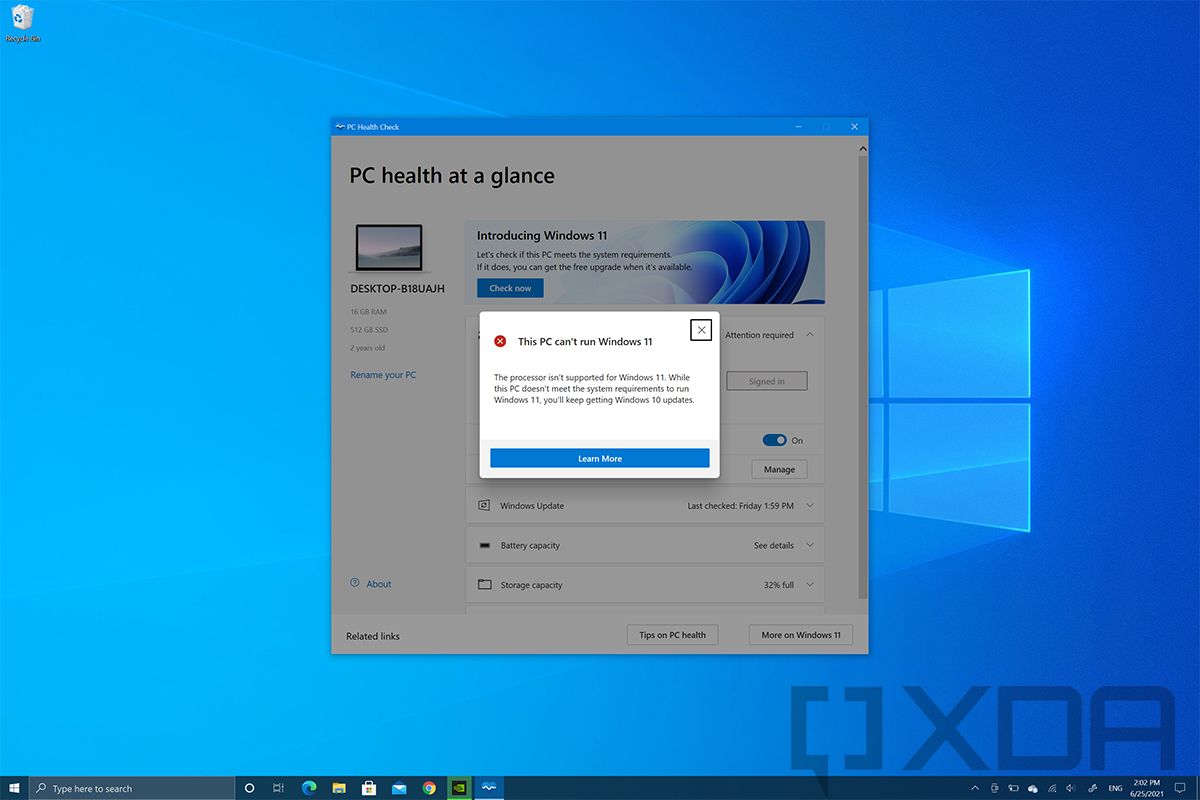After Microsoft announced Windows 11 yesterday, it published the minimum requirements for the OS. As it turns out, this is the first time that the minimum requirements have been raised in over a decade. To make it easy for you, the company released an app called PC Health that would tell you if your device can run Windows 11.
It didn't really go well. Many were finding that they can't upgrade to Windows 11, but they didn't know why, as PC Health wasn't saying. Now, the app has been updated to tell you why your device is ineligible for the new OS.
There are a lot of reasons that your PC might not be eligible. Pretty much every requirement has been raised. You need 4GB RAM now instead of 2GB, and you need 64GB storage now instead of 32GB. You also need TPM 2.0, a roadblock for many.
CPU requirements have changed as well. 32-bit CPUs and single-core CPUs are no longer supported. On the main system requirements page, it says that you need at least a 1GHz 64-bit CPU with two or more cores.
There's also a CPU compatibility list that lists every processor that's supported by Windows 11. Anything older than Intel's eighth-generation processors is not on it. It's possible that these devices will end up working at some point, but the PC Health app says that they won't be compatible with Windows 11. The image above was taken on the original Surface Book, which has sixth-generation Intel processors.
If your PC is left behind when Windows 11 comes around, don't worry. You're still good to go on Windows 10 for a while. Windows 10 is going to get an update later on this year. In fact, Windows 10 as a whole is going to be supported until 2025.
If you want to see if your device is ready for Windows 11, you can read up on PC Health and grab the download link from here.

